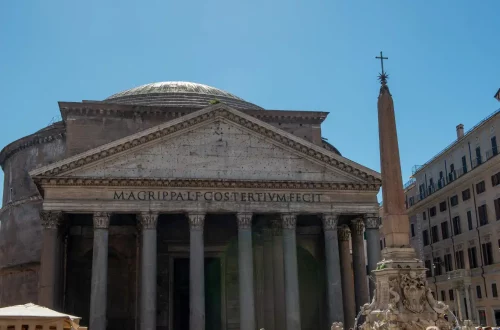In recent years, the desire for Italian dual citizenship among Americans has seen a sharp rise. While this trend reflects a pursuit for better opportunities, it has also uncovered issues within the unregulated market that supports such endeavors.
Fraudulent practices and poorly managed processes have turned the pursuit of citizenship into a challenging and, at times, risky venture.
The surge in demand for Italian citizenship
The concept of acquiring Italian citizenship through jus sanguinis (right of blood) has been a growing phenomenon in the United States. This legal principle allows individuals to claim citizenship based on their Italian ancestry, extending up to the second generation (i.e., their grandfather).
Recent statistics demonstrate the increasing popularity of Italian citizenship, with 1.5 million applications per year. While official figures may vary, the motivations behind this surge are clear. For many, Italian citizenship is not merely a legal status but a gateway to broader opportunities, including access to the European Union (EU), reduced university tuition fees, and enhanced professional mobility across 27 member countries.
Another compelling factor driving this interest is the cultural connection. Italian descendants in America often view citizenship as a way to honor their heritage and preserve family traditions that were lost through time.
As of recent data, approximately 17.2 million people in the United States identify as Italian Americans, representing about 5.15% of the total population. The numbers suggest that millions of individuals may qualify for Italian citizenship, further fueling the demand.
Take advantage of specialized assistance to secure your passport for a borderless future.
The growth in applications has, unfortunately, created a fertile ground for fraudulent practices and exploitation. The unregulated market for dual citizenship services has given rise to so-called “ghost companies” that claim to facilitate the process but operate dishonestly. These companies often prey on the emotional and financial investment of applicants, employing a variety of deceptive tactics.
One common strategy involves impersonation. Fraudulent companies may present themselves as “consular agents,” falsely claiming to be authorized intermediaries of the Italian government. This deception can lead applicants to believe they are receiving official support when, in reality, they are entrusting their applications to unqualified entities.
Another prevalent tactic is the use of fraudulent document translations. Some companies deliberately introduce errors into translated documents, prolonging the process and increasing costs for applicants. These errors can result in delays or even rejection of applications, adding frustration and financial strain to an already challenging journey.
A particularly troubling practice involves the promise of “VIP processing.” Fraudulent companies charge extra fees, claiming to provide privileged access to public officials or faster application reviews. Such practices are not only unethical but also illegal under Italian law.
For applicants seeking Italian citizenship, ensuring the credibility and reliability of the services they use is paramount. Experts recommend partnering with certified lawyers in Italy to navigate the application process. Legitimate professionals should be registered with the Ordine degli Avvocati (the Italian Bar Association), and applicants can request their registration number for verification.
Transparency is another key factor in identifying trustworthy services. Reliable companies provide clear and detailed contracts that outline the scope of services, associated costs, and timelines. Payment methods also serve as indicators of legitimacy. Companies that request payment in cryptocurrency or outside of legally registered contracts should raise immediate concerns.
Legitimate services ensure that all documentation is meticulously prepared and that applicants are kept informed throughout the process. Applicants are encouraged to thoroughly review contracts and verify the credentials of any service provider before proceeding.
For millions of Americans, obtaining Italian dual citizenship is more than a legal process; it is a way to reconnect with their cultural heritage. However, the growing demand for citizenship has revealed challenges in the unregulated market, including risks of fraud and unreliable services.To successfully navigate the application process and preserve their heritage, applicants must ensure they work with trustworthy professionals. Italian citizenship offers not only legal benefits but also a meaningful bridge to the past and opportunities for the future.






